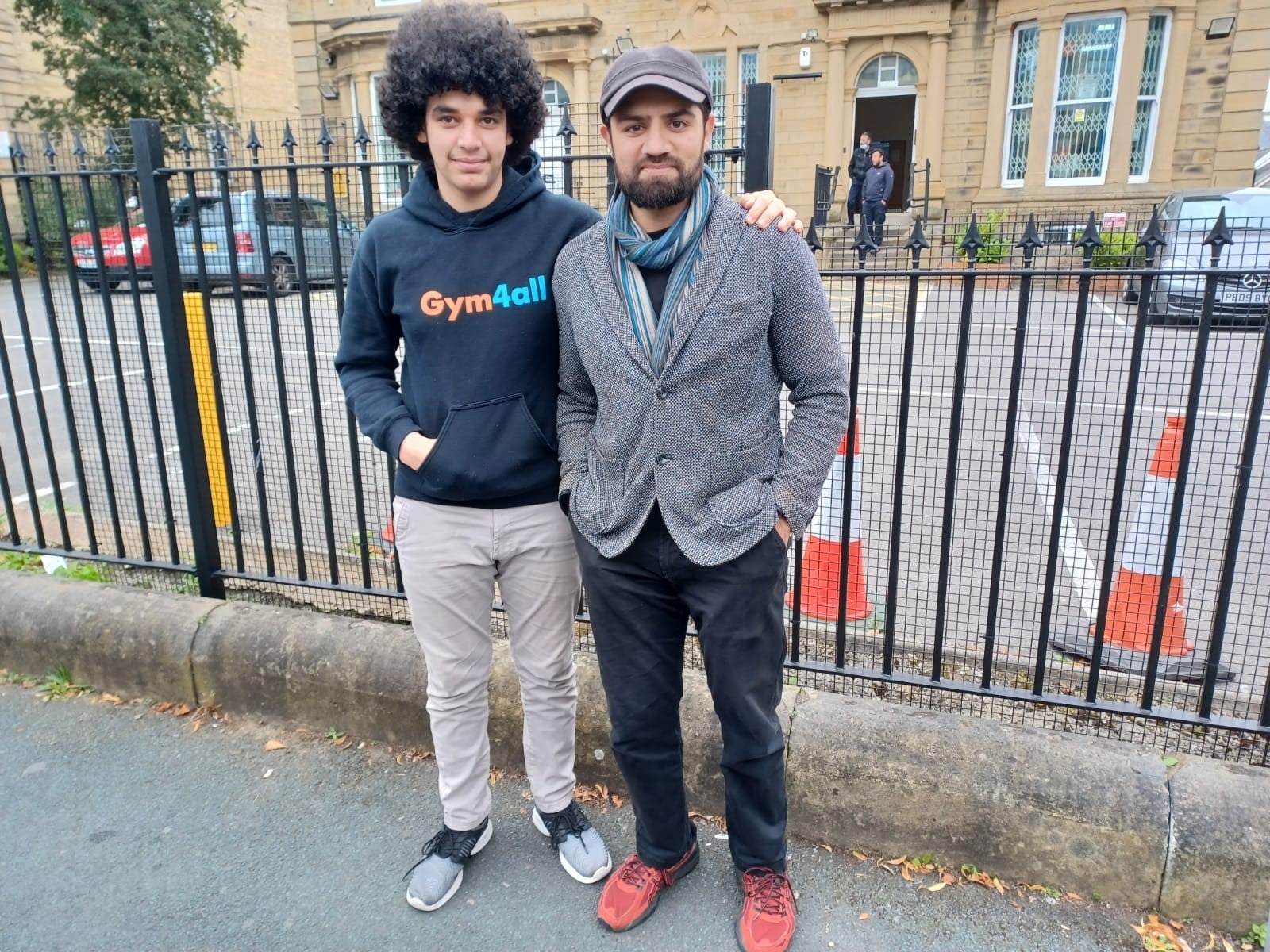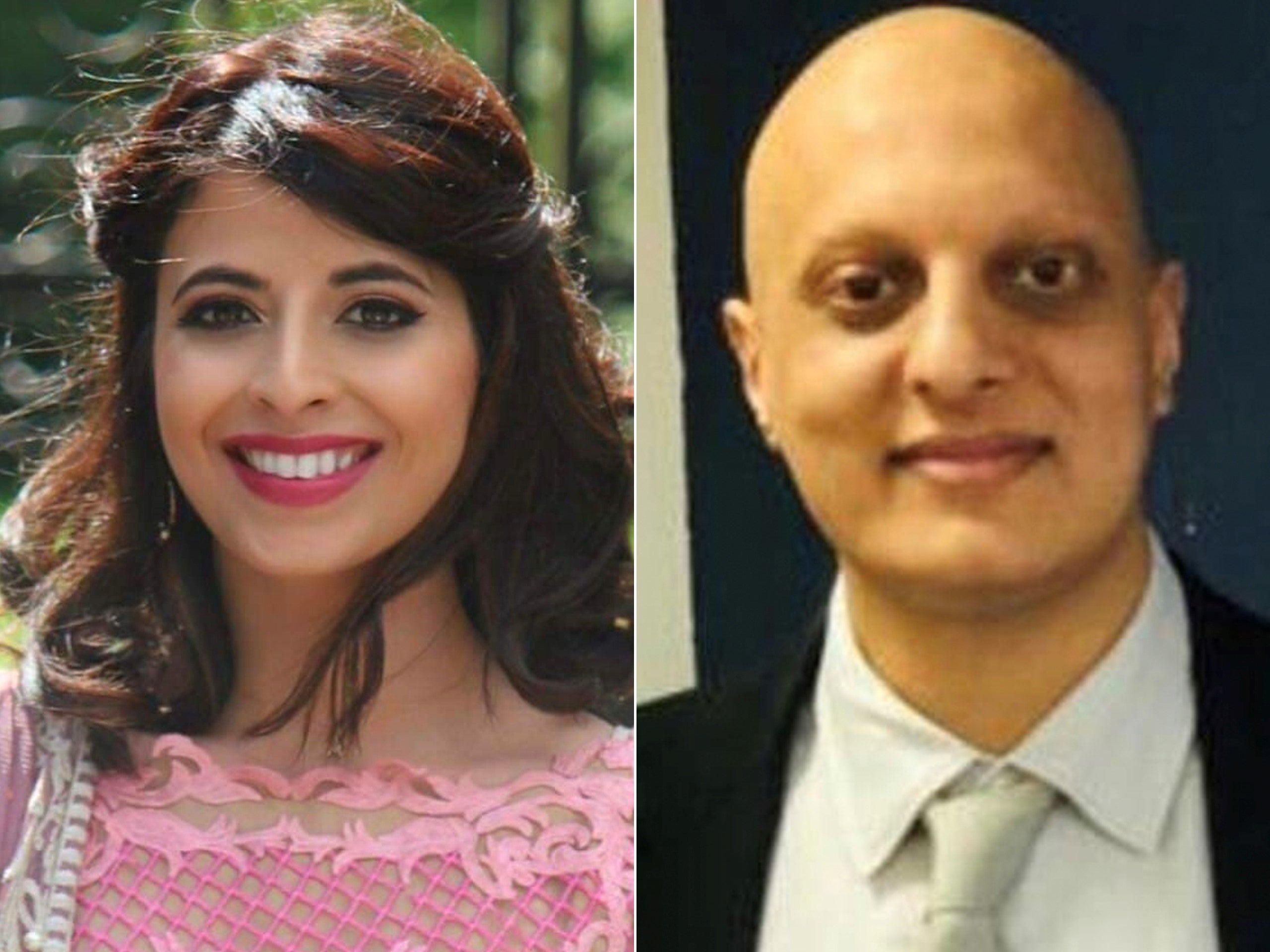‘The most rewarding thing I’ve done’: Inside the scheme placing Afghanistan’s teenage refugees with mentors
Vetted volunteers will be asked to become family friends in a bid to help newcomers who have no one else here. By Colin Drury


Your support helps us to tell the story
From reproductive rights to climate change to Big Tech, The Independent is on the ground when the story is developing. Whether it's investigating the financials of Elon Musk's pro-Trump PAC or producing our latest documentary, 'The A Word', which shines a light on the American women fighting for reproductive rights, we know how important it is to parse out the facts from the messaging.
At such a critical moment in US history, we need reporters on the ground. Your donation allows us to keep sending journalists to speak to both sides of the story.
The Independent is trusted by Americans across the entire political spectrum. And unlike many other quality news outlets, we choose not to lock Americans out of our reporting and analysis with paywalls. We believe quality journalism should be available to everyone, paid for by those who can afford it.
Your support makes all the difference.When Dr Sohail Ahmed agreed to become a mentor for a Syrian child refugee in Bradford, he did so believing there were many things with which he could help the new arrival.
Two months later, it was his then 13-year-old mentee who was helping him. Specifically, the youngster was teaching this West Yorkshire GP Arabic.
“I mentioned I was learning and he said he’d teach me,” Dr Ahmed says today. “We’d sit at his dining room table going through it. A complete role reversal. But it opened my eyes to what a two-way street this was.”
The 37-year-old is one of almost 50 people who, over the last three years, have volunteered to mentor a teenage refugee or asylum seeker as part of a unique pilot scheme run in London, Birmingham and Bradford.
Now, the programme, called Arise Mentoring, which was created by the respected social enterprise My Foster Family, is to be expanded in a bid to help the influx of Afghan children currently arriving in the UK.
It will work with local authorities and schools to match youngsters with specially vetted volunteers, who will be tasked with helping the newcomers settle into their new environment by providing practical and emotional support along with bridging links to the local community.
The teenagers involved will be those arriving here with their own families as well as those in care, while meetings will take place in either an educational or a home setting.
But the unique feature of the scheme is perhaps its emphasis on informality. Ultimately, it is hoped that, because the mentors will stand slightly apart from officialdom, they will become lifelong family friends – a sort of “godparent” in old money; someone who can offer advice on everything from how a family can set up bill payments to where the youngster might get a game of football, or how best to progress their future career plans.
In Dr Ahmed’s case, it quite often involved being heartily fed when he arrived at his mentee’s family home.
“Every time I went round there’d be a mini banquet,” says the father of two. “I was saying to them it wasn’t necessary – a glass of water will do – but, you know, Middle Eastern cooking? I couldn’t complain.”
Over time, he helped the family – that’s mentee Ahmed Al Shaban, now aged 16, as well as dad Amir and mum Hala – with a range of issues from school places to signing up for GP services. He showed them round Bradford and introduced them to his own family over a meal at a Syrian restaurant in the city.
“Hala was saying to me, ‘Very nice, very nice, but I could have cooked this better,’” he laughs.
What else? “You’re filling in those gaps that the rest of us take for granted that we just know how to do,” he says. “It’s sort of explaining how things work here – something as simple as reading a bus timetable – so they can find their feet.”
“Seeing Ahmed grow into a young man has been an honour, to be honest,” says Dr Ahmed.
For young Ahmed, the friendship was, he says, invaluable. Next week, he will start a BTEC in applied science at college with a view to one day becoming a respiratory therapist.
“There’s no way I could have done that without help,” he says. His school did lots to assist him in settling in, he is keen to emphasise, but it was Dr Ahmed he could turn to when he didn’t understand certain forms that needed filling in, or processes that needed completing.
“Nice guy, lovely guy,” says dad Amir, who works in money exchange. “Not a big eater.”

For Shadim Hussain – the man behind Arise – this mutual fondness is exactly what he hoped the scheme would achieve.
“These are teenagers who have been through real life-altering experiences,” he says. “Many are fleeing war-torn countries and have lost loved ones. They have seen their homes destroyed and their dreams put on hold. But these are still young people who have the same potential as anyone else to succeed in life. What we’re trying to do is help them achieve that by giving them and their families someone to turn to.”
He founded the scheme after becoming convinced of the need for refugee families to have a friend here beyond those working with local authorities or within the charity sector. That itself came to his attention through his work with My Foster Family, the company he set up in 2016 with the aim of increasing the number of black and ethnic minority families providing care in the UK.
Up until now, the mentorship programme has recruited volunteers almost exclusively through referrals from its existing networks of healthcare professionals. Now, with the scheme and its safeguarding systems bedded in – and with more refugees arriving – it is looking for volunteers from other walks of life.
“It’s one of the most rewarding things I’ve done,” says Dr Allyah Abbas-Hanif, who was paired with a then 18-year-old Albanian in London. “I’ve always been a big believer that you try and pull others up with you. I think mentoring, to me, felt like a good way of living that value.”
Her mentee, Artjola, arrived in the UK after being trafficked here. She escaped what was effectively captivity by climbing through a restaurant window, before walking into a police station in Ealing. After being placed with a local foster family, she was connected with Abbas-Hanif, a cardiology physician living in west London.
“She’s a real little tough nut,” says the 35-year-old mother of two today. “When we first met she could hardly speak English. How did we communicate? With difficulty. But it was about persevering – on both our parts, perhaps. Seeing her develop has been such a joy.”
Three years on, Artjola is now a young mother aiming for a career in travel and tourism. Her place on the mentoring programme has now come to an end, but she and Abbas-Hanif remain close, still meeting for coffee, and texting every few days.
“The paradox is you do feel guilty because you can’t do more,” says Abbas-Hanif. “But I hope I helped her find her feet here a little bit. She’d had such a tough childhood. I hope I’ve opened her eyes to what the world can be.”

Join our commenting forum
Join thought-provoking conversations, follow other Independent readers and see their replies
Comments